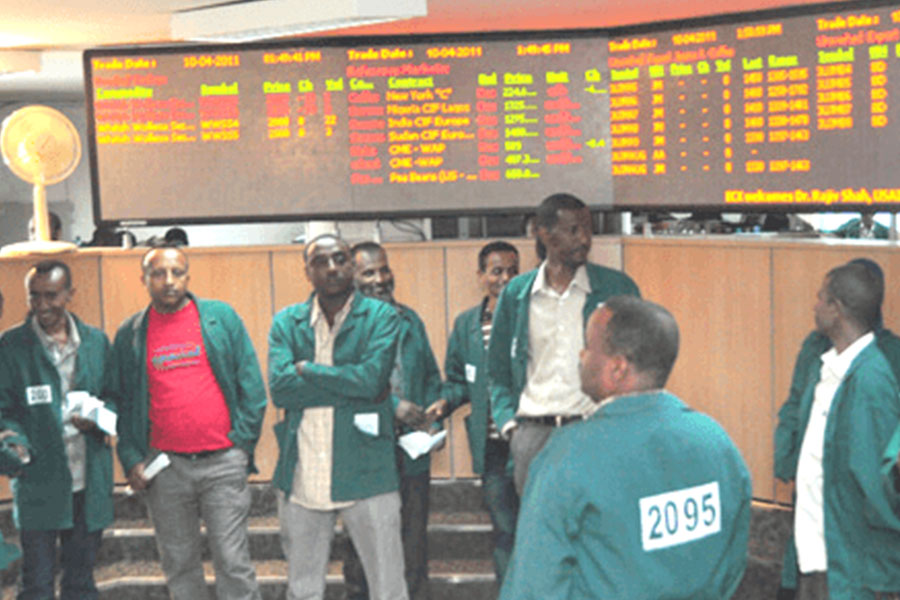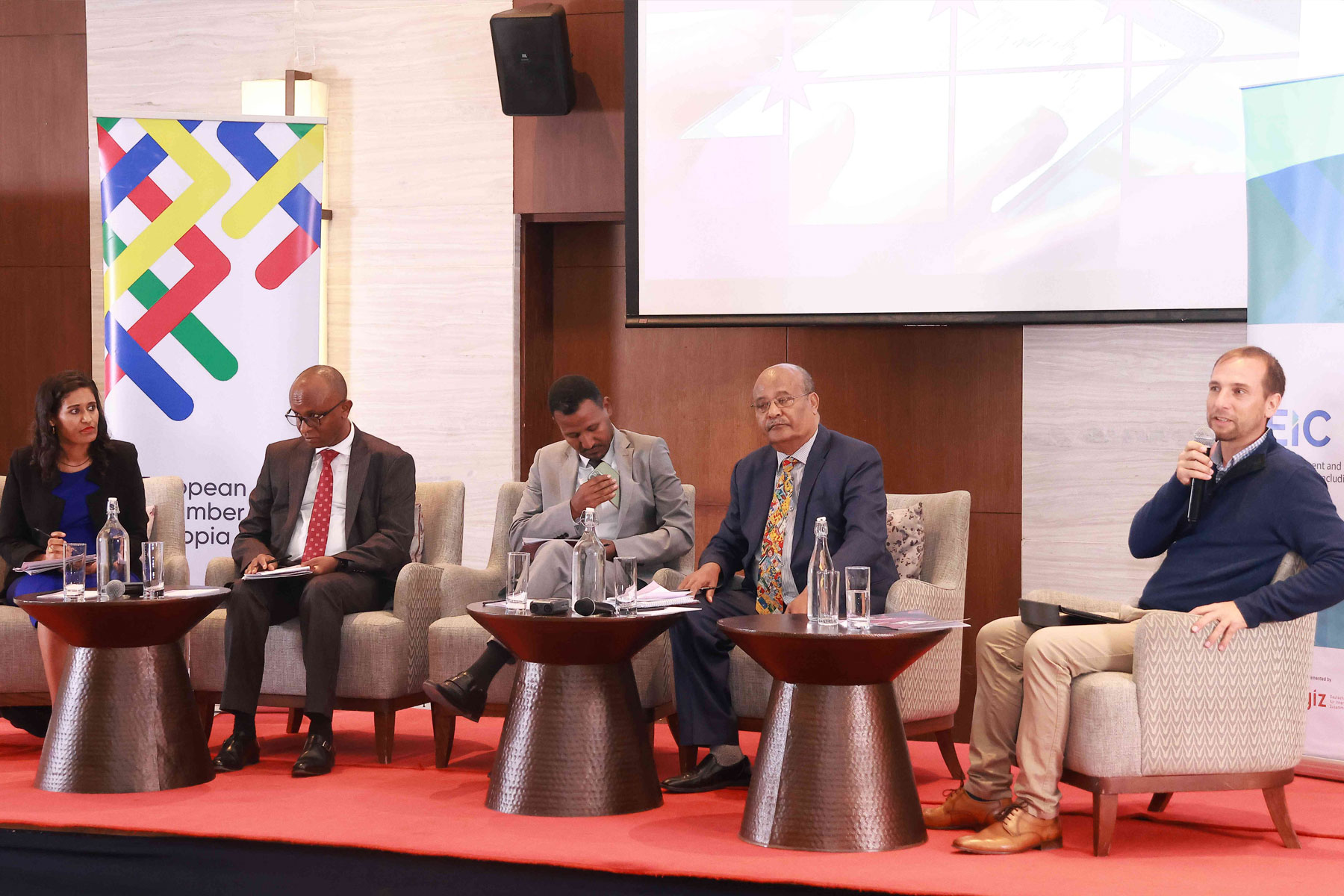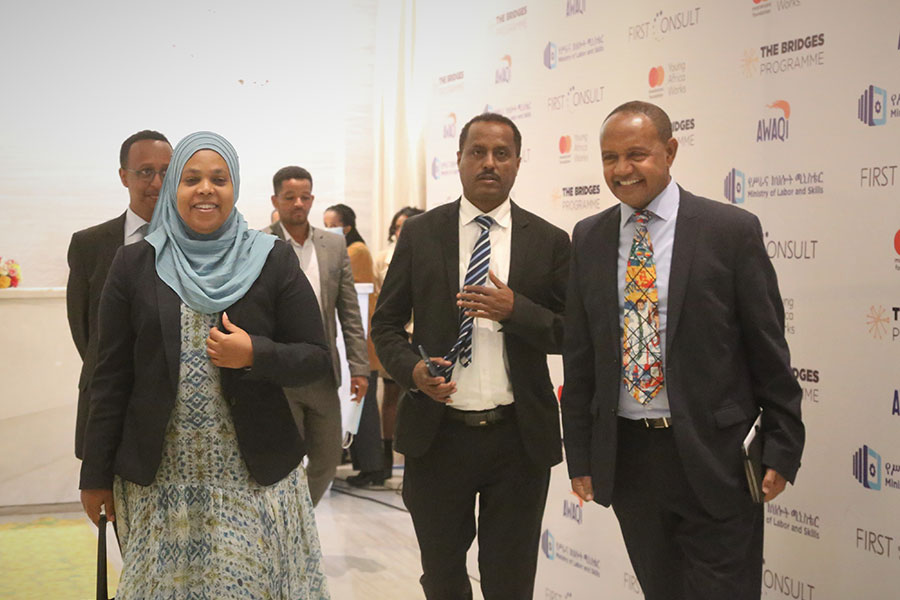
Fortune News | Apr 03,2023
Apr 9 , 2023
By Bjorn Lomborg
Supporting free trade appears to be out of fashion. It has been blamed for job losses and all but abandoned by policymakers in rich countries. Over the past century, trade had increased as a percentage of the global economy, but this peaked around the global financial crisis. It is now declining. This is also true for Ethiopia, where trade has dropped from 48pc of the economy in 2011 to 24pc today, according to the World Bank.
This is regrettable because ensuring freer trade is one of the world's best development policies. It has been known for centuries that trade lifts incomes because it allows a nation to specialize and produce effectively what it does best. One study finds that trade makes us all 27pc richer; countries, on average, have incomes more than one-fourth higher than a world without trade.
Trade does not just lift average incomes. It also helps lift the world's poor out of abject poverty. One of the most cited recent studies finds that the incomes of the poorest 20pc grow as fast as the average.
We have seen this clearly in the world's two most populous nations, China and India.
As China's trade soared, incomes grew seven-fold and extreme poverty declined from 28pc to near zero. India experienced a similar if more muted trajectory: when tariffs were reduced from a stifling 56pc in 1990 to six percent in 2020, average incomes rose almost four-fold and extreme poverty declined from 22pc to 1.8pc. We have seen similar trajectories for fast-growing countries like South Korea, Chile, and Vietnam.
Prosperity from trade is shared.
It is little wonder that achieving freer trade is one of the promises that world leaders have signed up for the Sustainable Development Goals (SDGs) for 2030. Unfortunately, the world is failing on this and most other promises.
It is no secret why. Leaders promised everything to everyone, and the list of promises runs to 169 targets. Having hundreds of priorities is like having none at all. The list has many core targets, such as increased trade, eradicating infant mortality, better schooling, and eliminating war and climate change. But simultaneously, it includes well-intentioned but much more peripheral targets like boosting recycling, more urban parks, and promoting a lifestyle in harmony with nature.
This year the world is at halftime for the SDGs; we are nowhere near halfway. The world cannot do everything. It is time to identify and prioritize the most crucial promises.
New peer-reviewed research shows why more trade should be on the global agenda. The study considers the problems of job losses highlighted by rich-world politicians. It maps out how much additional cost freer trade imposes on these workers through losing their jobs, needing to reskill (often to lower-paying employment), or leaving the job market altogether.
But the study also uncovers the advantages of more trade, such as higher incomes and the consequent improvements for the world's poor. This makes it possible to weigh both the costs and benefits of freer trade. The study is ground-breaking. It offers the first attempt ever to establish costs and benefits not just globally but for the world's rich and poor.
The economic model shows that if we grow global trade by five percent, the present-day cost for all workers worldwide into the future would be one trillion dollars. This cost certainly justifies the concern of populist politicians. Yet, the benefits to humanity turn out to be 11 trillion dollars, making this a very good deal for the world.
The people who are affected by free trade should be helped more by governments around the world. But the significant surplus from freer trade provides a pot of money to do so and presents an enormous development opportunity to raise incomes and lift people out of poverty.
The new model also shows who bears the costs and demonstrates why rich countries have cooled most on trade. Because rich countries comprise the larger part of the global economy, they gain 60pc of the 11 trillion dollars. But they suffer more than 90pc of the costs. While this validates some political concerns, it misses the larger picture: Rich countries gain seven dollars for every dollar of costs.
And it entirely neglects what an excellent opportunity trade is for the poorer half of the world. The costs are small at 15 billion dollars, but benefits run far beyond a trillion dollars. The economists working with the Copenhagen Consensus, a think-tank, find a phenomenal 95 dollars of long-term benefits for each dollar of loss, increasing incomes and driving down poverty.
We cannot promise everything if we are serious about improving the world. We have to design the most efficient policies first. More trade is among the most rewarding ways to deliver better lives and incomes.
PUBLISHED ON
Apr 09,2023 [ VOL
24 , NO
1197]


Fortune News | Aug 20,2022

Fortune News | Apr 28,2024

Radar | Jul 17,2022

Viewpoints | Nov 18,2023

Radar | Jan 16,2024

My Opinion | 131499 Views | Aug 14,2021

My Opinion | 127855 Views | Aug 21,2021

My Opinion | 125833 Views | Sep 10,2021

My Opinion | 123463 Views | Aug 07,2021

Dec 22 , 2024 . By TIZITA SHEWAFERAW
Charged with transforming colossal state-owned enterprises into modern and competitiv...

Aug 18 , 2024 . By AKSAH ITALO
Although predictable Yonas Zerihun's job in the ride-hailing service is not immune to...

Jul 28 , 2024 . By TIZITA SHEWAFERAW
Unhabitual, perhaps too many, Samuel Gebreyohannes, 38, used to occasionally enjoy a couple of beers at breakfast. However, he recently swit...

Jul 13 , 2024 . By AKSAH ITALO
Investors who rely on tractors, trucks, and field vehicles for commuting, transporting commodities, and f...

Jun 28 , 2025
Meseret Damtie, the assertive auditor general, has never been shy about naming names...

Jun 21 , 2025
A well-worn adage says, “Budget is not destiny, but it is direction.” Examining t...

Jun 14 , 2025
Yet again, the Horn of Africa is bracing for trouble. A region already frayed by wars...

Jun 7 , 2025
Few promises shine brighter in Addis Abeba than the pledge of a roof for every family...

Jun 29 , 2025
Addis Abeba's first rains have coincided with a sweeping rise in private school tuition, prompting the city's education...

Jun 29 , 2025 . By BEZAWIT HULUAGER
Central Bank Governor Mamo Mihretu claimed a bold reconfiguration of monetary policy...

Jun 29 , 2025 . By BEZAWIT HULUAGER
The federal government is betting on a sweeping overhaul of the driver licensing regi...

Jun 29 , 2025 . By NAHOM AYELE
Gadaa Bank has listed 1.2 million shares on the Ethiopian Securities Exchange (ESX),...